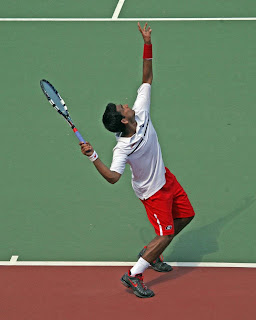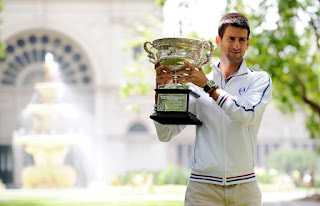THE SERVE: TO SNAP OR PRONATE, WHICH IS BEST?

To Snap or Pronate, Which is Best? There are two theories on how to hit a serve. There are people who believe that “Snapping” the wrist is the best way and others who believe that “Pronating” is the best method of serving. The difference between the two options is difficult to detect visually. When you Snap the wrist to execute the serve the racquet-head tends to finish with the tip leading and the right and left edges going through contact almost symmetrically. When you Pronate to hit the serve the left edge (in the case of a right-hander) tends to lead the racquet through the ball. For me, both styles do the same thing when executed correctly. Both Snapping and Pronating, when done correctly, promote a wrist that dominates the arm during the serve. Whenever the arm dominates the wrist during the serve the result will be a serve lacking feel for your target and reduced racquet-head speed. A dominant wrist that Snaps or Pronates will give the serve th


